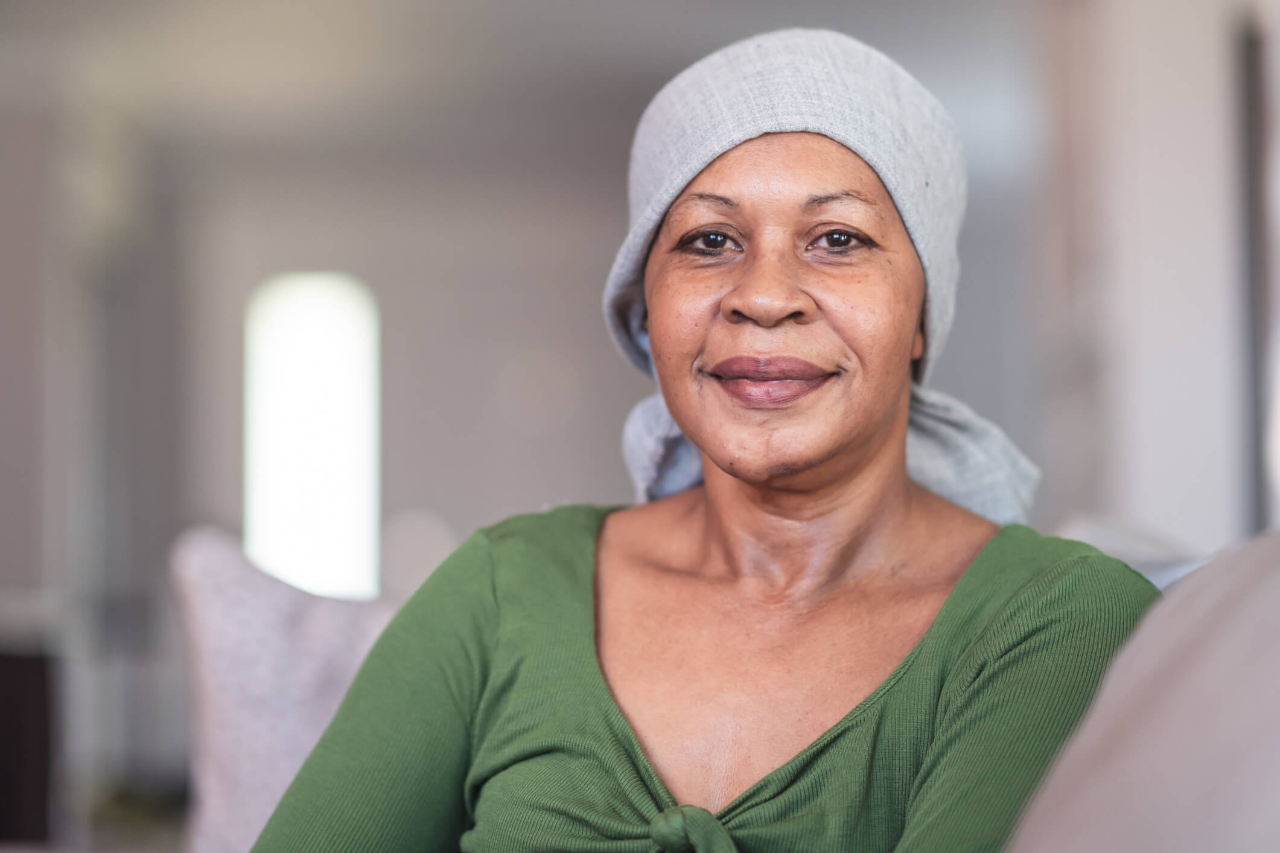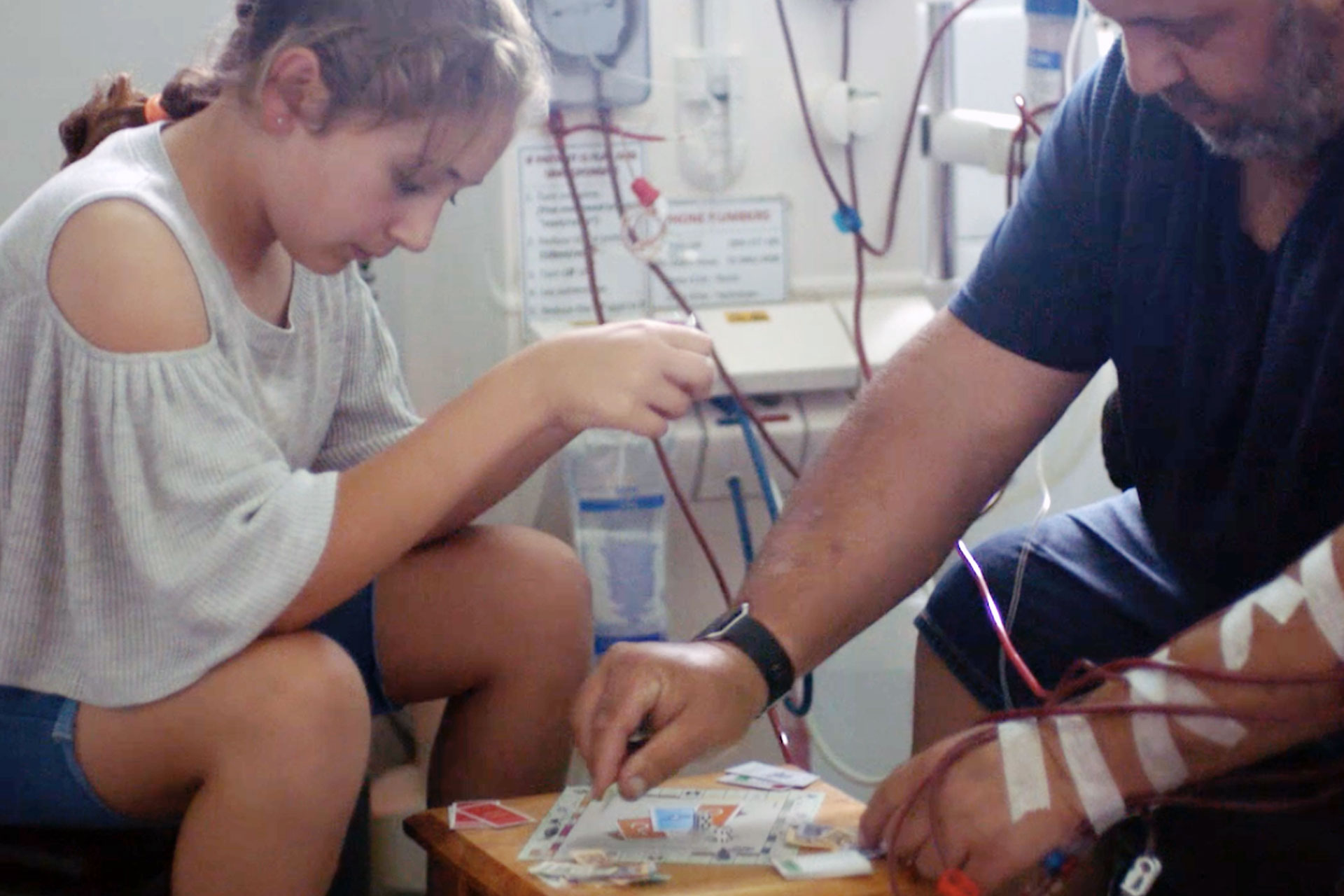-
While many people are currently experiencing ‘pandemic fatigue’, many other individuals continue to be affected by COVID-19, including those undergoing treatment for cancer. Cancer treatments and blood-related cancers can weaken your immune system, which increases your risk of infections, including COVID-19.
This can be a cause of stress for both patients and their families – but your emotional wellbeing is important, too. Here are some tips to help you have proactive discussions with your care team and look after both your physical and mental health.
Cancer patients and COVID-19 – what are the risks?
When chemotherapy and radiation therapy kill or damage cancer cells, they also temporarily decrease or damage white blood cells which are important for fighting infections. Immunotherapy medicines can cause your immune system to attack healthy cells, increasing your risk of getting viruses. Surgery to take out lymph nodes or transplant bone marrow can also lower your immune system.
Blood cancers such as leukaemia or lymphoma also increase your risk of infection because of their impact on white blood cells.
If you’ve completed active treatment, you may still have a weakened immune system, so it may be worth taking some extra precautions.
Factoring COVID-19 into your cancer treatment plan
It’s worth checking in with your healthcare team to see if any part of your treatment needs to change during this time. You can review the treatment you’re undergoing – and if the risks and benefits have changed, discuss whether there are other options you can consider.
Many doctors are now doing consultations for cancer patients over the phone or through videoconferencing, for example, which can save time and reduce your risk of COVID-19 transmission. Medibank is trialling Chemo at Home – a service that allows eligible members to receive their chemotherapy treatment in the comfort of their own house where their treating doctor considers it clinically appropriate.
Having this choice potentially means being closer to your support network, increased privacy and saving the time that is usually spent travelling, waiting and being discharged. Many of the program’s participants report that being able to continue with activities of daily life helps them feel more ‘normal’.
Here are some questions to ask your treatment team:
- Can I do some consultations remotely via phone or videoconferencing?
- Is it possible to get Chemo at Home?^
- Have the risks and benefits of any of my treatments changed?
- Should I get the flu vaccine and if so, when?
- Do I need another booster vaccine?
- What should I do if I am a cancer patient and I contract COVID-19?
Ways to help reduce your risk of COVID-19
Everyone needs to take COVID-19 precautions, but it’s especially important if you’re a cancer patient undergoing treatment (or living with someone who is). Your treatment team will have already given you instructions to reduce the risk of infection, which will also help protect against coronavirus. Be vigilant about washing your hands, wearing a mask and physical distancing when in public. At home, it’s a good idea to regularly clean and disinfect surfaces. You can read the latest advice about hygiene, masks and physical distancing on the Department of Health’s website. .
In addition to the measures above, the Australian Technical Advisory Group on Immunisation (ATAGI) now recommends that immunocompromised adults and children over 5 years (which includes people receiving chemotherapy) receive additional vaccine doses and boosters. Cancer Australia has a Frequently Asked Questions page with up-to-date information about vaccines for people with cancer.
Looking after your emotional and mental wellbeing
Living with cancer can already feel isolating, and with the extra challenges of COVID-19, you may be feeling more worried, anxious, scared, stressed, or down than usual. It’s normal to feel a range of emotions but remember that support is available if you need it. Here are a few things that can help:
Find ways to be physically active
Exercise can reduce stress, lift your mood and help boost your immune system. You might like to get involved in an outdoor activity or try some online classes. Just check in with your treatment team first and be sure to start slowly, before building up gradually. Be particularly careful if you’ve been diagnosed with COVID-19 – keep moving around your home but avoid strenuous exercise.
Stay connected to friends and family
Maintaining relationships can be difficult if you’re trying to keep physical contact to a minimum. Try arranging to meet up with friends and family in outdoor environments, where you’re at lower risk of COVID-19 transmission. Video calls can be a great way to keep in touch, too – as can good old-fashioned emails and letters.
Reach out for specialised support
Cancer Council has an online community that can help you connect with other people who are experiencing cancer – you can also ring the Cancer Council information and support line on 13 11 20. It can be helpful to get support from a mental health professional if you’re struggling to cope – speak to your care team for an appropriate referral, and check out Medibank Better Minds, a health hub offering a variety of support resources. If you’re a Medibank member with hospital cover* you can call Medibank’s 24/7 phone support line 1800 644 325 to speak to a mental health professional for confidential advice or information.
If you or someone you live with has COVID-19 symptoms
If you are a cancer patient or someone you live with experiences COVID-19 symptoms such as fever or other flu-like symptoms, contact your treatment team straight away and follow their advice. Always call ahead and explain your situation before showing up at a treatment centre.
Things you should know
* OSHC members should call the Student Health & Support Line on 1800 887 283.
^ Must have eligible hospital cover, all relevant waiting periods must have been served and treating doctor must consider it appropriate. Out of pocket expenses may apply. Chemotherapy, palliative, infusion and dialysis program not available in all areas.
What cancer patients need to know about COVID-19

